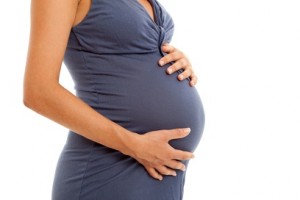Food safety is one of the many things that pregnant women need to be on guard. There is so much danger that they can cause their unborn child by not being picky of what they eat while the baby bump is growing. One of the serious concerns is listeria.
 Listeria 101
Listeria 101
So, what is listeria? It is a kind of harmful bacterium that may contaminate ready-to-eat, refrigerated food varieties such as meat, dairy, seafood, and poultry. Since it can thrive beyond fridge temperatures, it is something that everyone must be wary about. However, given its supposed risks to babies in the womb, preggy mommies need to be extra careful.
Listeriosis is a disease that pregnant women and their unborn children are very susceptible to. For the most part, it may not seem to affect the mother at all although some may suffer from fever, chills, diarrhea, and muscle aches due to contamination. The more alarming fact is that, the infection may be passed onto the unborn babies.
If Listeriosis occurs during the first trimester, it could lead to miscarriage. For a late infection, meaning, the disease occurred during the third trimester, it could cause a wealth of problems both for the mom and child. Listeriosis could cause pre-term labor. It could also cause several conditions concerning the baby including low birth weight, intellectual disability, seizures, blindness, paralysis, brain, heart, or kidney impairments, and even death.
Prevention is Key
This is why it is very important that Listeriosis is prevented. It has been found that women who are carrying a fetus are 10 times more susceptible to this condition than healthy adults. To cut the possible ties, you need to:
- Increase your refrigerator’s temperature to 40 °F or 4 °C. The freezer, meanwhile, must be set at 0 °F or -18 °C. To be doubly sure, keep a ref thermometer within reach.
- Follow the two-hour rule for refrigerated foods. This means that you need to discard food that has been left out at room temperature two hours or more after preparation or eating.
- Eat perishable foods as soon as possible and do not let them sit out for long.
- Stay away from hotdogs, deli, and luncheon meats unless you have cooked them steaming hot.
- Consume smoked seafood if they are cooked thoroughly, like if they were prepared in a casserole.
- Keep off milk and dairy products that have unpasteurized milk.
- Eat less or not at all of pates and meat spreads that are refrigerated.






